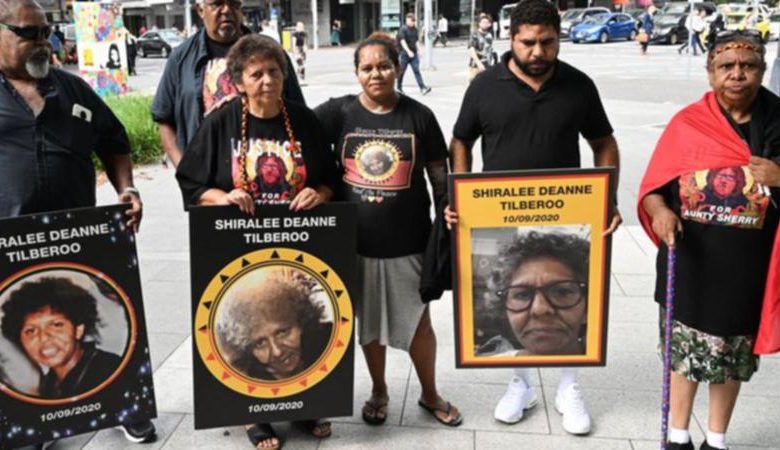Coroner says prisoners should be kept a maximum 72 hours – not 21 days – in watch house after deaths of two women

[ad_1]
WARNING: Aboriginal and Torres Strait Islander people are advised that this story contains images of people who have died
The length of time prisoners can be held in jail must be drastically reduced, while funding for organizations supporting people in custody must be increased, an investigator says.
Deputy State Coroner Stephanie Gallagher made the recommendations in the findings of an inquest into the deaths of two women from natural causes within hours in Queensland, raising concerns about the care and supervision they received.
Get the news with the 7NEWS app: Download today
Local woman Shiralee Deanne Tilberoo, 49, known as Aunt Sherry, died of a subarachnoid haemorrhage due to a ruptured berry aneurysm at Brisbane City Watch House on 10 September 2020.
Vlasta Wylucki, aged 50, died of ischemic heart disease due to coronary atherosclerosis at Southport Watch House on 1 March 2018.
Officers who checked on both women recorded that no problems were found when the women appeared visibly unwell or their condition could not be determined, Gallagher said in the findings released Thursday.
The women also experience substance withdrawal – Tilberu from heroin and Wailukee from alcohol.
Tilberoo was held for an “unusually long period” after being arrested on outstanding warrants relating to 56 offences.
The Rockhampton-born woman’s family said she had not been able to overcome the trauma of the Aboriginal Protection Act era, which filtered down through the generations.
“They would sit around the table and talk about how their language was taken from them, how their cultural practices were taken from them, living in Warrabinda, these Aboriginal communities were concentration camps, you’d wake up to the bell and sleep to the bell, you’d go to the bell,” the results of the investigation quoted them as saying.
Tilberu was denied food and medical services while awaiting transfer to the Brisbane Correctional Center for Women, which was taking a maximum of five inmates a day due to COVID-19 restrictions.
She was apparently dead when a police officer took breakfast to her cell around 6 a.m., four days after her arrest.
One officer who made seven false entries relating to Tilberoo inspections was suspended for six months before being redeployed, while the police ethics command recommended three officers be targeted for dereliction of duty.
Gallagher said he accepted the failure to carry out checks was not done out of malice or racial prejudice.
Wylucki, a former nurse who was born in Croatia, was placed in a cell around 6 p.m. on February 28, 2018, following her arrest for violating a domestic violence order.
Officers were unable to resuscitate her after she could not be roused about 12 hours later.
The inquest was told she was asked to leave her mattresses on the floor when she was placed in a single cell with another woman who was in the only bed.
Her daughter Laura Wailuki told the inquest that finding out what had happened to her mother had come as a huge shock.
“Everybody thought she fell asleep and she did and she never woke up,” she said.
The Ethics Command found a large number of non-compliant physical checks, recommending disciplinary action against employees and audits to ensure procedures are being followed across the country.
Gallagher accepted that officials should not be criticized for placing Wylucki in the single-person cage, which contributed to inadequate background checks.
“Officers were working in a challenging environment and were limited by the resources and facilities provided to them by the QPS,” she said in her findings.
Gallagher recommended changes to the legislation to minimize the time inmates are held from 21 days to 72 hours.
She also called for police officers working hours to receive more training and for medical staff to be in person or available via technology 24 hours a day.
Gallagher recommended the government provide extra funding to organizations that support people in custody.
“Greater access by non-governmental organizations to persons detained in observation homes will improve external accountability and transparency,” she said.
[ad_2]




